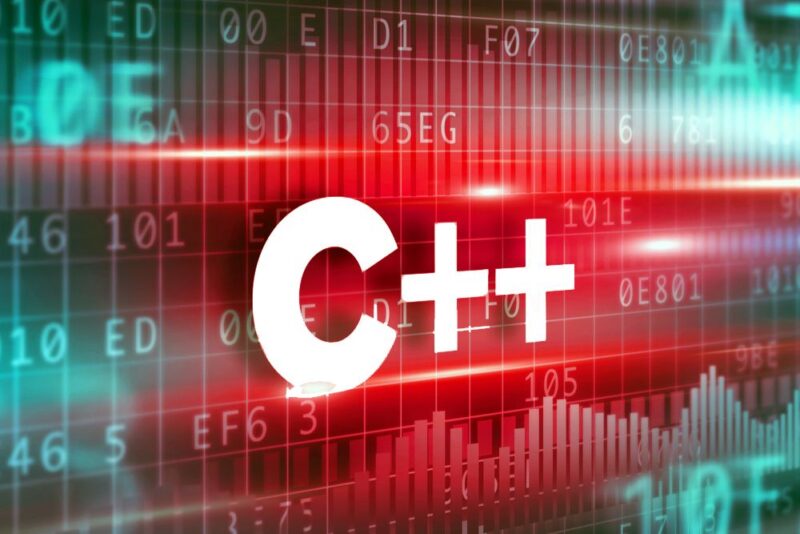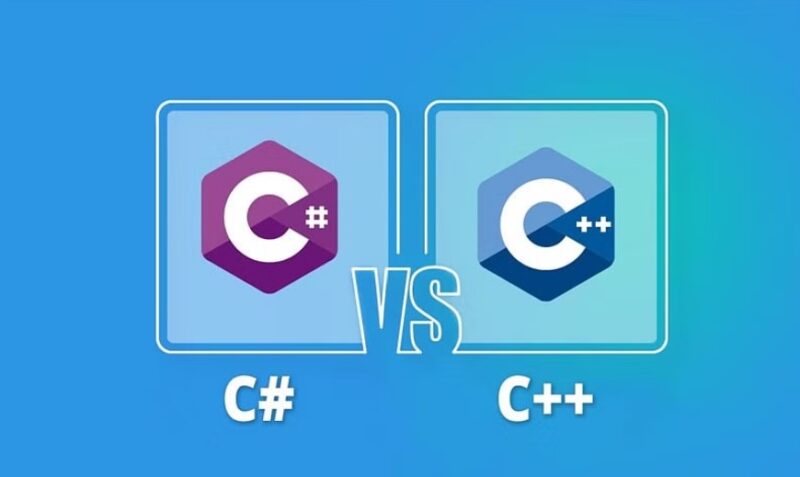C# and C++ are today considered to be among the most effective programming languages that can be used. Both are historic, both have massive developer bases, and both are well-represented in game design, commercial development, and everything in between.
But which one is right for your project?
In this article let us look at the main functionality that differentiates C# and C++, their advantages, and their performance, and determine in which case should C# be used, and in which C++. If you are a developer, project manager, or the person who is going to hire a developer, this guide will be useful for you.
1. Understanding the Basics ─ C# vs. C++
There is a clear relation between C# and C++ since both languages are based on C language, yet they have a lot of differences that differentiate them from each other in terms of design and usage. C++, which originated in the 1980s, has object-oriented features and a focus on system-level control. C#, on the other hand, came into the market in 2000 as a language of the new.NET framework for developing applications on Windows only.
- C++ ─ Famous for its ability for fast and smooth operation as well as for its effectiveness in terms of the control over system’s resources, C++ is especially popular in such branches as the game industry and highly effective application production. This makes it ideally suited in resource-limited environments since it has a low-memory, low-level operation for memory management.
- C# ─ Focused on simplicity and productivity, C# is commonly used in the development of enterprise applications, Web applications, contemporary Windows applications and game development. This direct compatibility with the.NET framework enables developers to rapidly assemble solid applications using a range of features within multiple tools.

2. Performance and Efficiency
In general, there is an opinion that C++ is faster than C#. This is due to the fact that C++ provides primal control over the memory and hardware resources and therefore directs developers toward achieving the best optimization of the instruction sets possible. In benchmarks, C++ turns out to be usually more effective than C#, particularly when C++ is used to create various high-resource applications such as game engines or even operating systems or embedded software.
- Memory management ─ C++ uses manual memory management, allowing developers to allocate and free memory as needed. While this requires careful coding, it also results in more efficient memory use.
- C# and garbage collection ─ C# relies on automatic memory management through the .NET garbage collector, which simplifies coding but can lead to performance hits due to background processing. This feature, while making C# easier for beginners, can slow down applications that require real-time performance.
For example, C++ is a language used in the development of game engines such as the Unreal Engine games, especially given the fact that time is critical in games with high requirements of high-end graphics and visuals. On the other hand, we have C# which is often used with Unity, a game development tool, or rather, engine, especially for mobile or indie games when developmental ease is preferred over raw performance.
3. Ease of Use and Learning Curve
For example, C++ is a language used in the development of game engines such as Unreal Engine games, especially given the fact that time is critical in games with high requirements of high-end graphics and visuals. On the other hand, we have C# which is often used with Unity, a game development tool, or rather, engine, especially for mobile or indie games when developmental ease is preferred over raw performance.
- Syntax and readability ─ C# is compact, thoroughly modern, and often results in writing less code to accomplish the same job. While C++ resembles C to a considerable extent, it can easily appear more challenging, especially if dealing with such things as pointers and templates.
- Error handling and debugging ─ C# has a direct and easily understandable error handling mechanism in-built as well as proper debugging features in Visual Studio. Mainly, C++ is lower-level and, thus, needs to be fixed manually more often than languages of a higher level.

4. Community and Ecosystem
A stable community and ecosystem refers to the necessary conditions with programming language in the long term. C# and C++ are both languages that have active open source communities today, they do slightly differ in the space they occupy.
- C++ community ─ C++ is already a rather old programming language that has accumulated a large number of libraries for a specific purpose for the development of specialized applications – from scientific computing to artificial intelligence and game development. Popular libraries include Boost and Qt for GUI development, as well as OpenCV for image processing.
- C# community and .NET ecosystem ─ C# benefits from the extensive .NET ecosystem, which includes libraries for almost every type of application, from web and desktop to cloud and IoT. In recent years, the open-source community has further strengthened C# with cross-platform tools like .NET Core and Xamarin for mobile app development.
5. Future Prospects and Considerations
As of 2024, both C# and C++ continue to evolve with new standards and frameworks that extend their reach into various domains.
- C++20 and beyond ─ Starting with C++ 20, concepts such as ranges and co-routines entered the language without compromising the efficiency of the language but making it friendly to developers. The language is expected to maintain strength in game development, embedded systems, and applications that require real time performance.
- C# and .NET 6 ─ C# reap the advantages of updates within the .NET environment being constant. C# is now more cross-platform than ever in.NET 6, you can build applications for Windows, macOS, Linux, and Mobile through.NET MAUI. Therefore, due to its widening use across the platforms and modern cloud-based environments, C# is a perfect choice.
For job seekers specializing in C#, a range of C# remote vacancies are available, particularly within the expanding cloud and enterprise software fields.

6. Choosing the Right Language for Your Project
Choosing between C# and C++ boils down to your project’s specific needs:
- For high-performance applications ─ If a degree of control over memory and resources is critical for an application – like in games, operating systems, and real-time simulations, C++ is probably the better bet.
- For business applications and rapid development ─ C# is typically faster for business applications, desktop applications, and web applications due to the support it gets from.NET framework and extensive library support.
Conclusion
C# and C++ are two great tools that have something to provide in software development. As fast as C++ is for high computational tasks and more flexible compared to its contemporaries when it comes to handling low-level aspects, C# is designed to be flexible in enterprise applications most especially when it is used with the.NET framework and with cross-platform tools.
Whether you are creating a computationally intensive video game or an interactive web application, the decision of which language to use can greatly affect the efficiency, speed, and quality of your work.
Related Posts:
- What To Look for When Choosing a San Antonio DWI Attorney
- Baby Carrier vs. Stroller ─ Which Is Better for Your…
- Is Your Vendor Management Process Ready for the Next…
- Top 7 Augmented Reality Trends for 2023: Next Frontier
- Top 5 Next Generation Data Center Trends You Need to…
- How to Help Your High School Student Choose the Right Path








